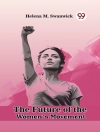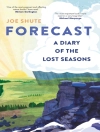Facing threats like climate change and nuclear warfare, science fiction authors have conjured apocalyptic scenarios of human extinction. Can such gloomy fates help us make sense of our contemporary crises? How important is the survival of our species if we wind up battling for an Earth that has become an unhabitable hellscape? What other possible futures do narratives of the end of humanity allow us to imagine?
Michael Bérubé explores the surprising insights of classic and contemporary works of SF that depict civilizational collapse and contemplate the fate of Homo sapiens. In a lively, conversational style, he considers novels by writers including Ursula K. Le Guin, Margaret Atwood, Liu Cixin, Philip K. Dick, and Octavia Butler, as well as films that feature hostile artificial intelligence, such as 2001: A Space Odyssey, Blade Runner, and the Terminator and Matrix franchises. Bérubé argues that these works portray a future in which we have become able to see ourselves from the vantage point of something other than the human. Though framed by the possibility of human extinction, they are driven by a vision of the “ex-human”—a desire to imagine that another species is possible. For all science fiction readers worried about the fate of humanity, The Ex-Human is an entertaining yet sobering account of how key novels and films envision the world without us.
表中的内容
Preface
Acknowledgments
List of Abbreviations
Introduction: Learning to Die
1. The Augmentation of the Complexity and Intensity of the Field of Intelligent Life: The Potential Ex- Human of The Left Hand of Darkness
2. Desperate Measures: Justifiable Despair in The Three- Body Problem and Oryx and Crake
3. Inherit the Wasteland: Or, How I Learned to Stop Worrying and Cede the Planet to the Smart Machines
4. Better Children: Octavia Butler and Genetic Destiny
Epilogue: Just Kill Me Now
Notes
Index
关于作者
Michael Bérubé is an Edwin Erle Sparks Professor of Literature at Pennsylvania State University and a former president of the Modern Language Association. He is the author of twelve books, including
Life as We Know It: A Father, a Family, and an Exceptional Child and
What’s Liberal About the Liberal Arts? Classroom Politics and “Bias” in Higher Education.












